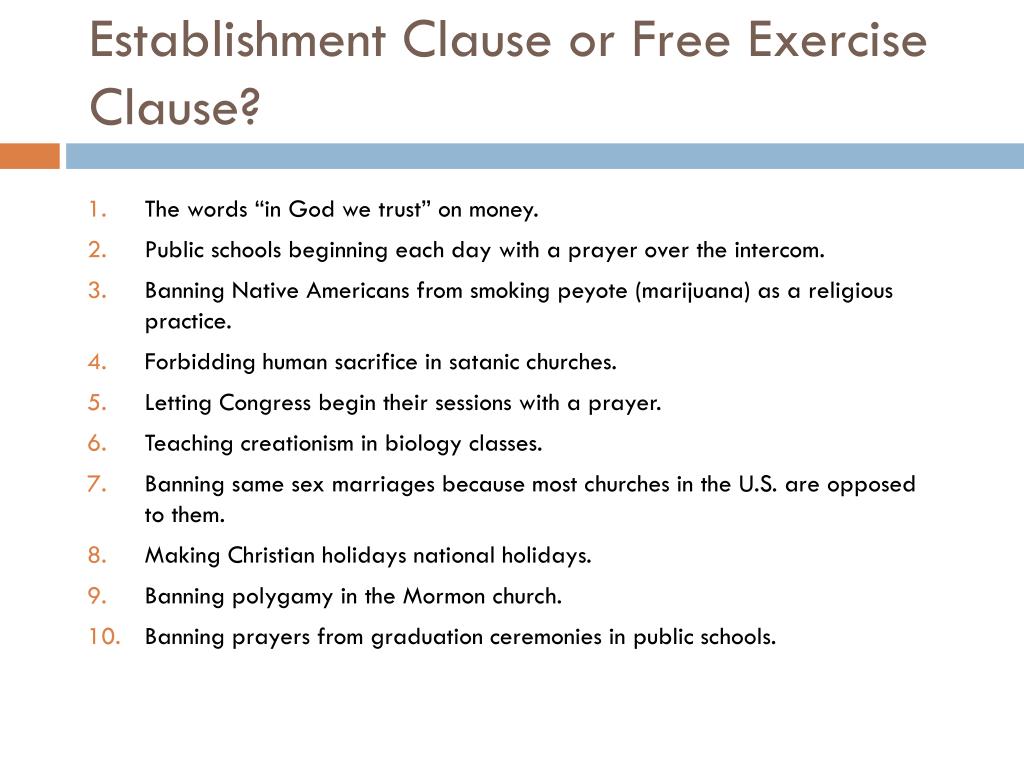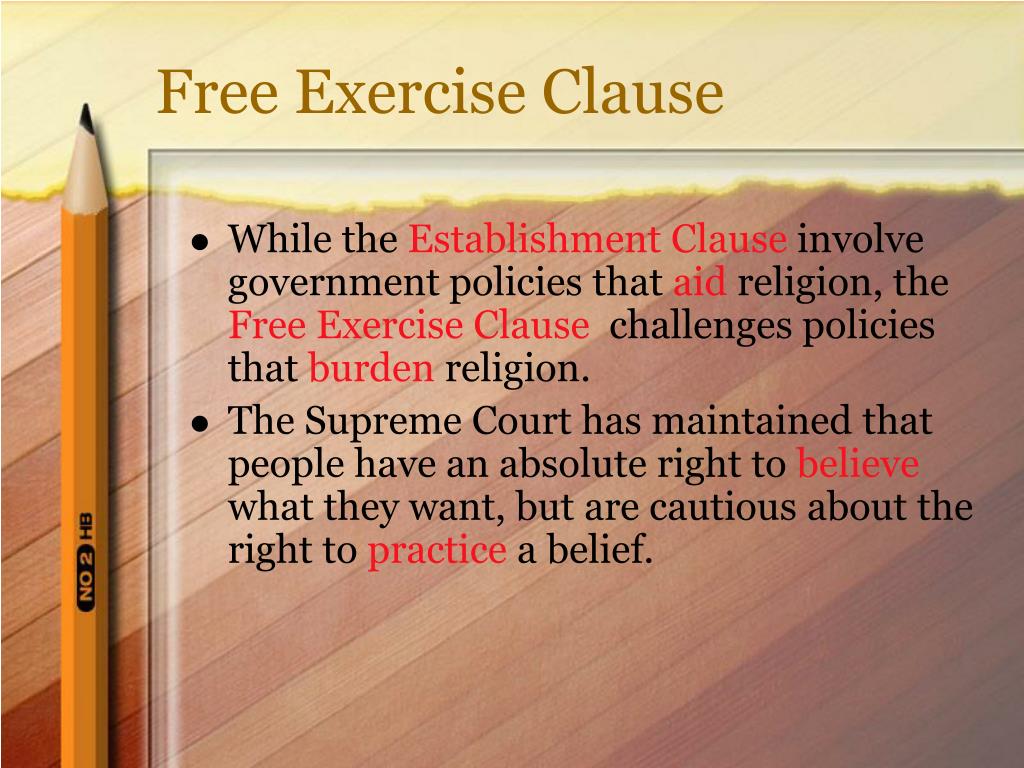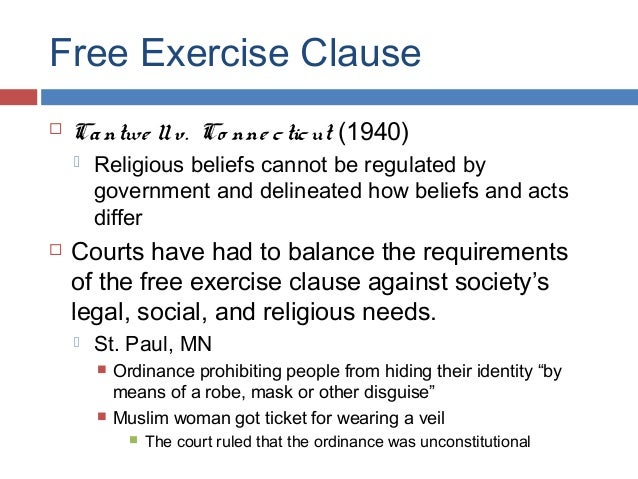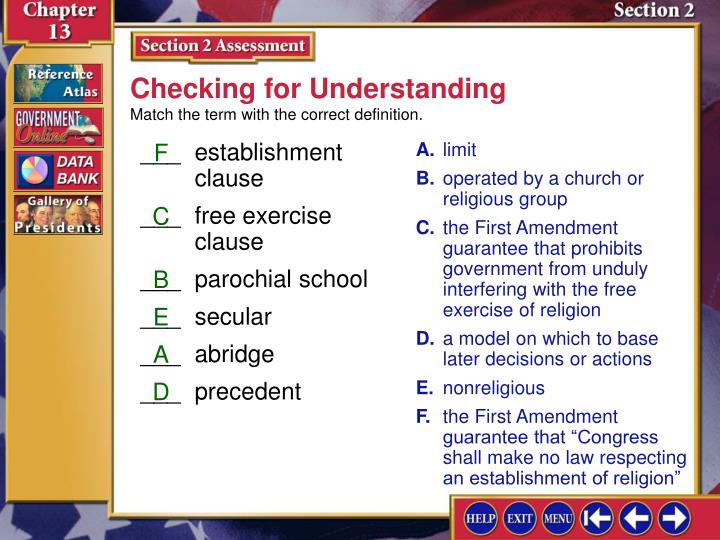Free Exercise Clause
Free Exercise Clause. Although the text is absolute, the courts place some limits on the exercise of religion. free exercise clause noun, often capitalized F&E&C Save Word Legal Definition of free exercise clause : the clause in the First Amendment to the U. The clause and its context read as follows: "Congress shall make no law respecting an establishment of religion, or prohibiting the free exercise thereof." The latter part is the Free Exercise Clause.
Theoretically, there should be no tension between the two religion clauses because they were both designed, essentially, to promote religious freedom by prohibiting federal interference in the matter.
Thus, the First Amendment prohibits Congress from passing a law that prohibits the "free exercise" of religion.
The tension between them is one that should be cherished rather than skewed to favor one clause over the. The First Amendment to the U. The free exercise clause of the First Amendment unquestionably provides people with the right to freely exercise their religious beliefs without the fear of interference or reprisal from the government.
Rating: 100% based on 788 ratings. 5 user reviews.
Sean Lightfoot
Thank you for reading this blog. If you have any query or suggestion please free leave a comment below.









0 Response to "Free Exercise Clause"
Post a Comment